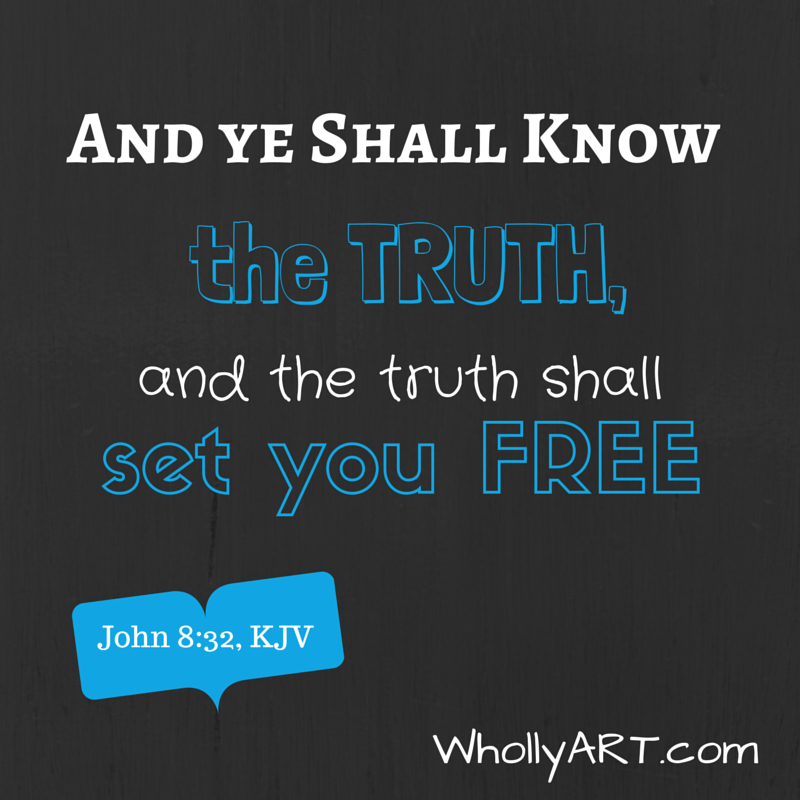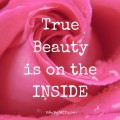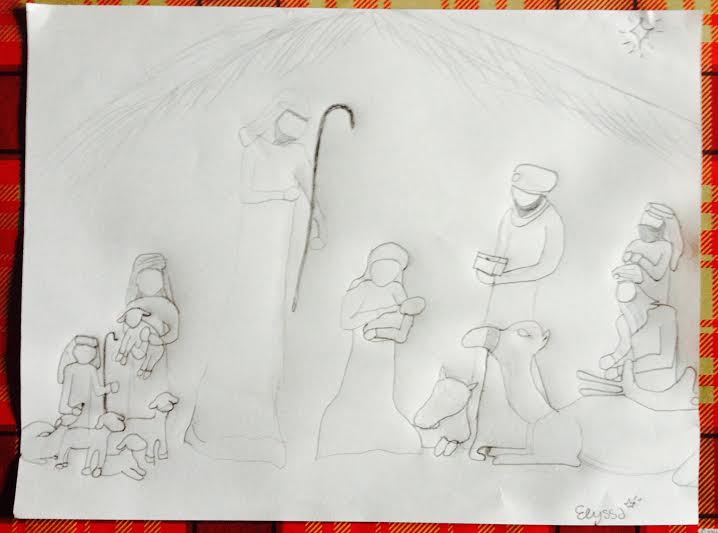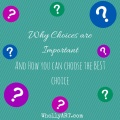Question The World’s Core Beliefs and Find Your Truth
Core beliefs are the reason we do what we do. As explained by CCI (Centre for Clinical Interventions), “Core beliefs are the very essence of how we see ourselves, other people, the world, and the future.” Because they control every aspect of our lives, core beliefs are EXTREMELY important.
It is also essential that we control our beliefs, because, as Flannery O’Connor teaches, “Your beliefs will be the light by which you see, but they will not be what you see and they will not be a substitute for seeing.”
How can we control our beliefs? By questioning them. Questioning your beliefs consists of finding out whether what you believe is true or not, and it happens when you ask yourself meaningful questions, like:
- Why do I believe this?
- Does this make sense?
- Is this belief serving me?
- Does this belief have a positive impact on me when I believe it?
- How does this belief make me and others around me feel?
It may seem nonsensical to question your beliefs. After all, isn’t the point of believing something to have faith and be undoubting? But, as crazy as it may seem, it is the exact opposite. You must question beliefs to find your own truth. Vera Nazarian puts it wonderfully: “If you have never changed your mind about some fundamental tenet of your belief, if you have never questioned the basics, and if you have no wish to do so, then you are likely ignorant.”
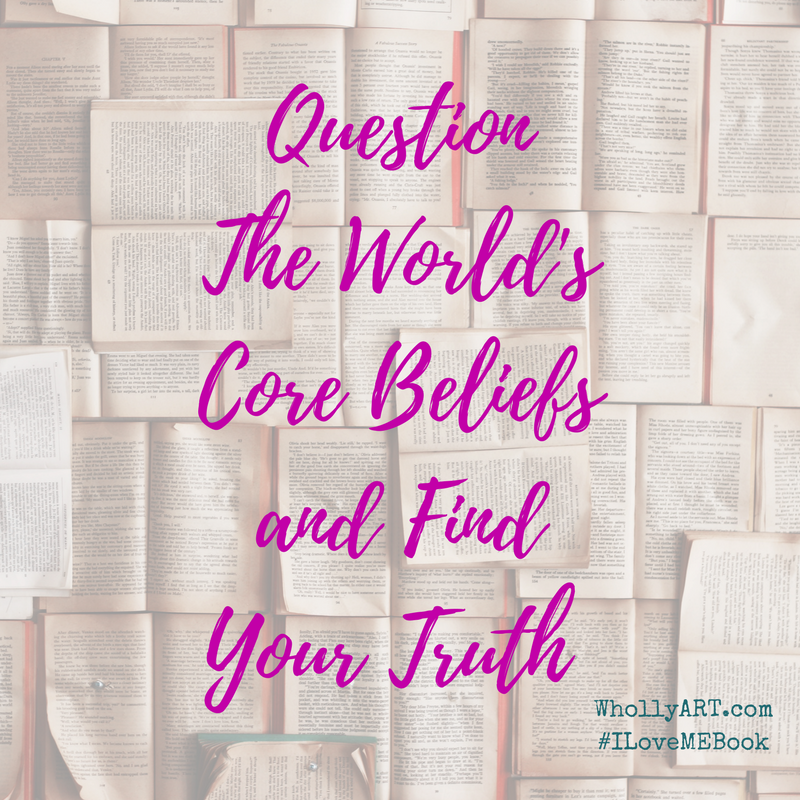
Are you believing what everyone else believes, or what you TRULY believe? Are you really basing your desicions, your entire life on what other flawed human beings have decided makes sense? As Blaise Pascal says, “People almost invariably arrive at their beliefs not on the basis of proof but on the basis of what they find attractive.” Questioning what everyone else believes brings you closer to truth, and truth is freedom.
Everyone has positive and negative core beliefs, and we all let them get the best of us sometimes. My mom has taught me how to question my beliefs and create positive ones. Here is a three step process to questioning your beliefs and finding truth:
1. Identify the Core Belief ~ First, figure which core belief you’d like to focus on. For example, let’s say someone have several self-destructive core beliefs, but they’ve chosen the core belief “I am unlovable.” They may need to elaborate on the statement, making it clearer, like: “I am unlovable because of the choices I have made.” It’s essential to focus on the essence of the belief.
2. Question the Core Belief ~ After identifying the belief, we need to question it, thoroughly and mercilessly, digging deep until you finally realize where this belief came from. With the example above, “I am unlovable”, a person might ask themselves a few questions like: Why do I think I am unlovable? What have I done that makes me unlovable? Can I absolutely be sure it’s true that I am unlovable? How does this belief show up in my life?
3. Replace the Core Belief ~ When you are done identifying your belief, questioning your belief, and figuring out how it affects your life, it’s time to replace your destructive belief with a positive, uplifting one. My mom has taught me that in all areas of your life, after you have gotten rid of a bad habit, you need to fill up the void with something good. For the example I’ve been using, the positive belief might be “I am lovable.”
Dan Pearce made a good point when he said, “The world’s greatest men and women have always been those who questioned everything that ever was presented to them as truth.” This is absolutely true! Think about all the inventors and geniuses of the world; each one was thought crazy and was ridiculed endlessly when they proposed that maybe there was another way, or that maybe we were wrong.
I was recently learning about Socrates, an ancient Greek philosopher, in my home school, who always encouraged his students to question their own beliefs, to mark their own paths in their lives. In fact, because the government felt threatened by the principles Socrates taught to the people of the city, he was sentenced to death. I feel this is the perfect example for questioning your own beliefs. Whenever one of Socrates’ students would ask him a question, he responded with his own question, making them find their own truth.
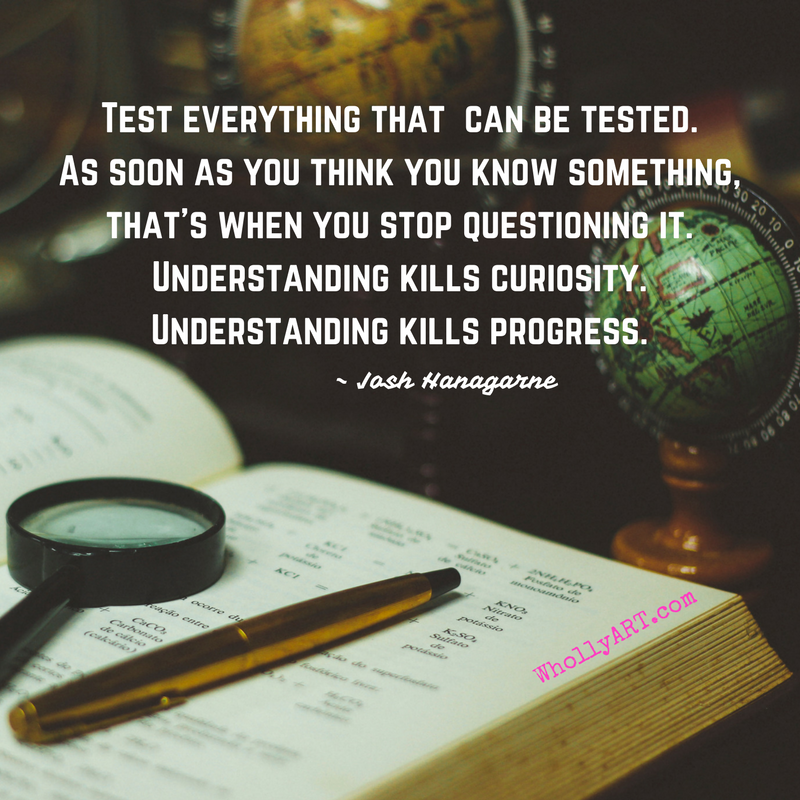
As we go on in life, it’s important to never stop questioning our beliefs, and never stop expanding your knowledge. Josh Hanagarne explained it best when he said: “Test everything that can be tested. As soon as you think you know something, that’s when you stop questioning it. Understanding kills curiosity. Understanding kills progress.”
I encourage you to try this three step process to question and change your own beliefs! What are your thoughts on core beliefs and questioning them?
What are some of your core beliefs you have decided to change? Can’t wait for your replies in the comments!
[elyssa]
